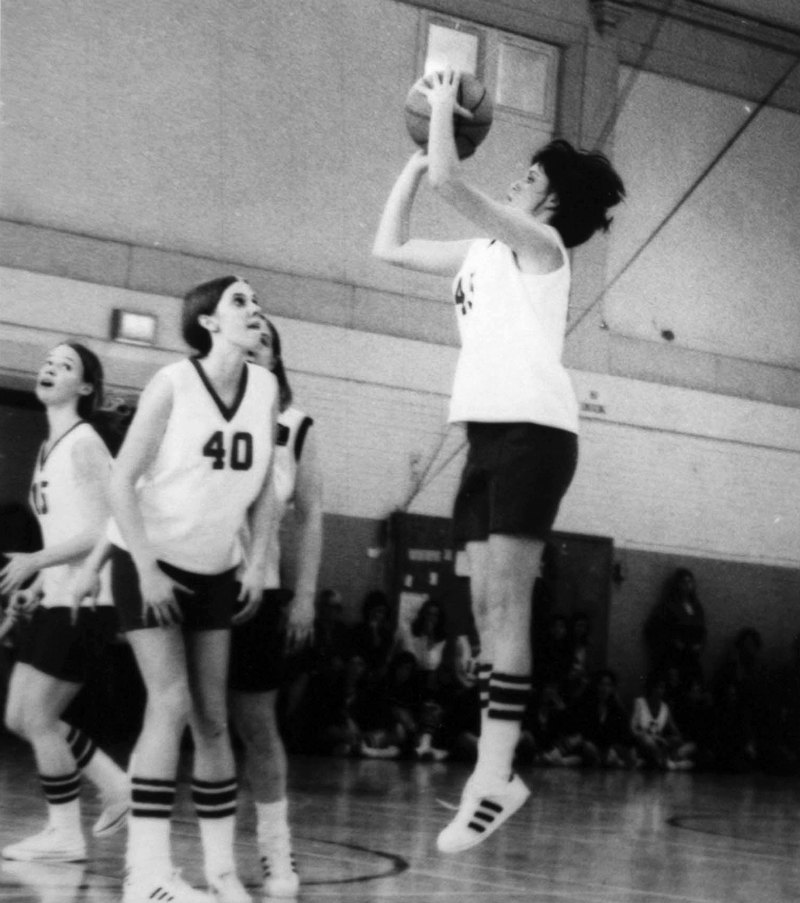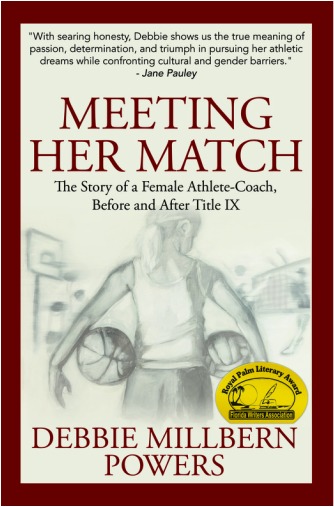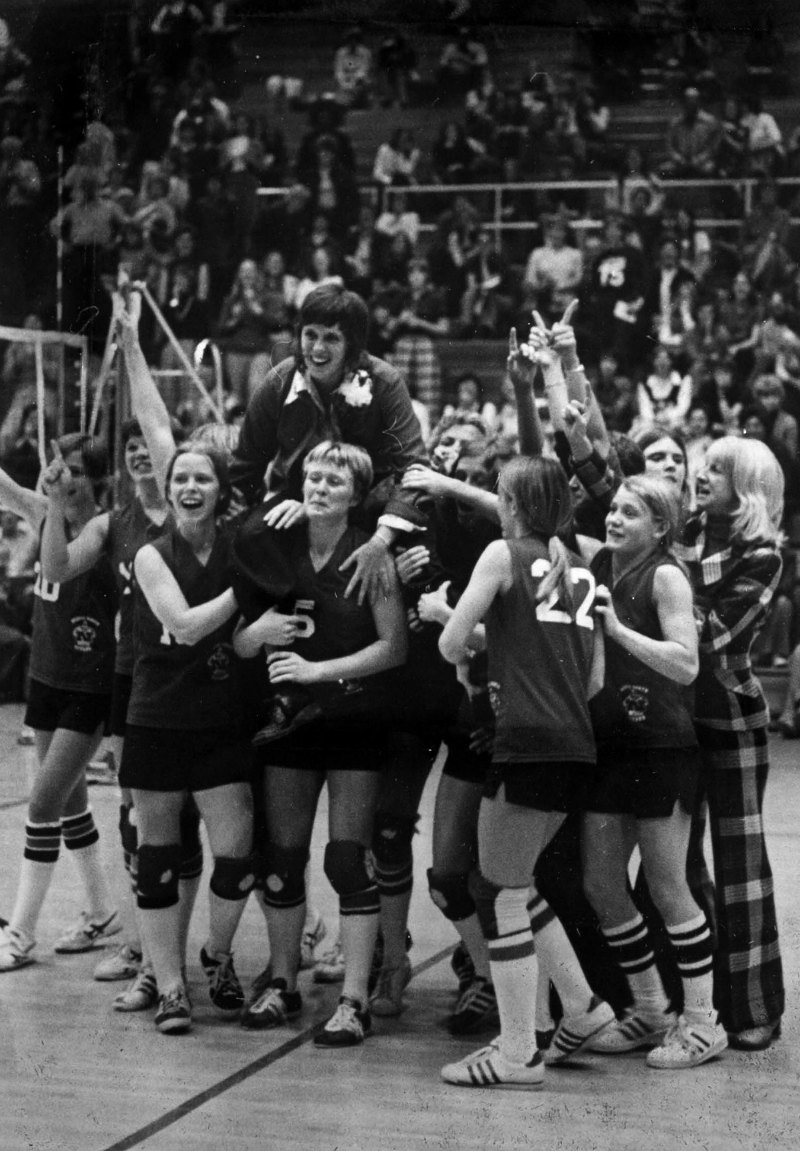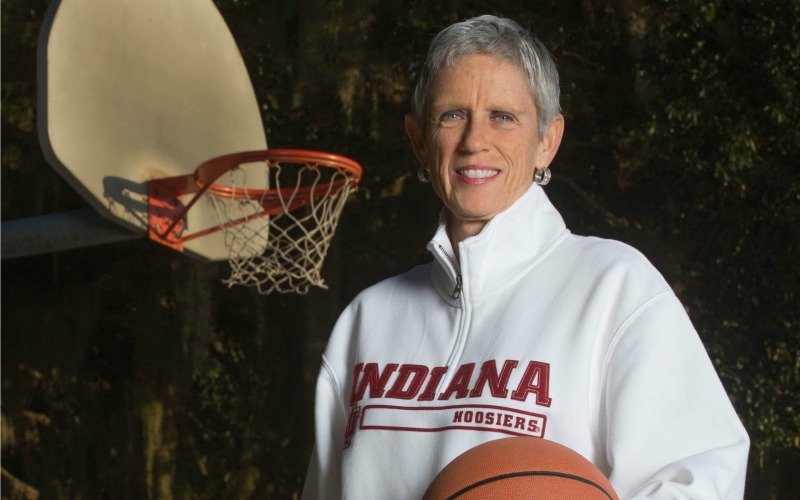About Debbie:
Debbie Powers grew up in Indiana in the ‘50s and ‘60s as a gifted athlete with an unrelenting passion for sports. She mastered her skills on the playgrounds against boys because there were no teams for girls. Playing basketball at Indiana University finally gave her a taste of organized competition, but also exposed her to the glaring inequities between men’s and women’s sports.
She led IU to the Final Four her senior season and was drafted to play in the first professional women’s basketball league. After the passage of Title IX, she redirected her passion into coaching. She faced a monumental and unprecedented challenge when her high school girls’ volleyball team was forced to play against boys in a dramatic state championship final. Her career in physical education and sports spanned thirty-three years, and included stints as a high school volleyball, basketball and tennis coach, the head women’s basketball coach at Ball State University, a collegiate volleyball and basketball referee, and a radio sports commentator.
She is a co-author of ten editions of a McGraw-Hill textbook titled: A Wellness Way of Life, and recently completed her inspiring memoir, Meeting Her Match, in which she recounts her journey in the world of sports. Her memoir was awarded First Place in the 2014 Royal Palm Literary competition by the Florida Writers Association, and is a 2015 International Book Award Finalist.
As the only girl in your family, do you feel that you were more aware of the inequalities for women than the majority of your generation?
Not really. In our family, I was just “one of the kids” battling for parental attention and the last piece of chicken at the dinner table!
Do you think you would have been as invested in the changes towards equal opportunity for men and women if you had not been in the sports world?
No. If I had simply sustained a career in teaching, a career dominated by women, I would not have been so aware of inequities. Teaching was a respectable career for women, and women’s salaries were comparable to male teachers who had the same years of experience. However, as an athlete and coach, I experienced numerous inequalities. At the time, sports was dominated by men.

Debbie shoots for a basket on her first organized team at Indiana University
Growing up in such a male-oriented time, where did your confidence to pursue sports stem from?
I developed my confidence on school playground and in neighborhood pick-up games. When I saw how I could perform against boys my age and older, I knew I had athletic abilities. Also, I was always selected first by my peers when it came time to pick teams. The playgrounds had no referees, reporters, or spectators. But in my mind, I was playing in Madison Square Garden!
When did you realize the impact you had on the rise of gender equality and inspiring women?
After I published my memoir last year, it was read by many women I had coached. Letters and emails began pouring in from these former athletes who told me what a powerful influence I had been in their lives. Many had become teachers and coaches because of me. It was then that I realized the impact I had had on their lives. Unfortunately, teachers and coaches often don’t hear about the outcomes of their work until many years after their students are grown.

Your book, Meeting Her Match, has stories many women can relate to, especially with the empowerment of women at the forefront of the national conversation right now. What prompted you to share your story?
Over the years I had told my story to friends about my high school girls team playing against boys in the Indiana State Championship match. Everyone was fascinated at how and why that could have been allowed to happen. They always exclaimed: “That would make a great movie… it’s like a female version of the movie, Hoosiers.” So, I wrote Meeting Her Match to tell my story. And a movie? Fingers crossed!
What women have you looked up to as role models in your career or life?
I adored my middle school physical education teacher, Mrs. Falls. She had a huge influence on me by encouraging me to become a physical education teacher. She loved all sports and encouraged even the weakest girls to excel. She was kind, yet competitive. I wanted to grow up and be just like her. During my professional career I was influenced by Mrs. Eileen Keener, the Athletic Director under whom I worked during my first years of coaching at Ball State University. She was a strong advocate for women’s sports. Neither of these women were famous or in the limelight. Yet, they were tireless workers who influenced thousands of young women.
What did it feel like when you first heard you had been hired to coach the women’s basketball team at Ball State after your own girlhood being denied the opportunities to play in a competitive setting?
I was very young – 25 years old – when I was hired by Ball State to be their head coach. I was extremely excited to share my love of basketball and my competitive spirit with college-age women athletes who were finally getting an opportunity to compete.
What is the best piece of advice you have ever been given?
“Always be yourself and imagine the possibilities.”

Debbie after coaching her team to the state championship
Meet Debbie and order a copy of her book here… debbiepowersauthor.com





Be the first to comment